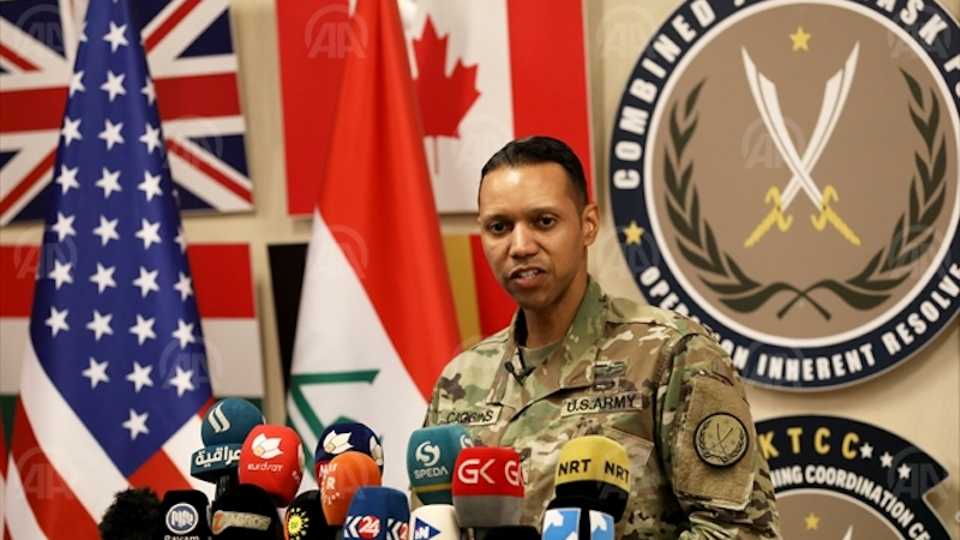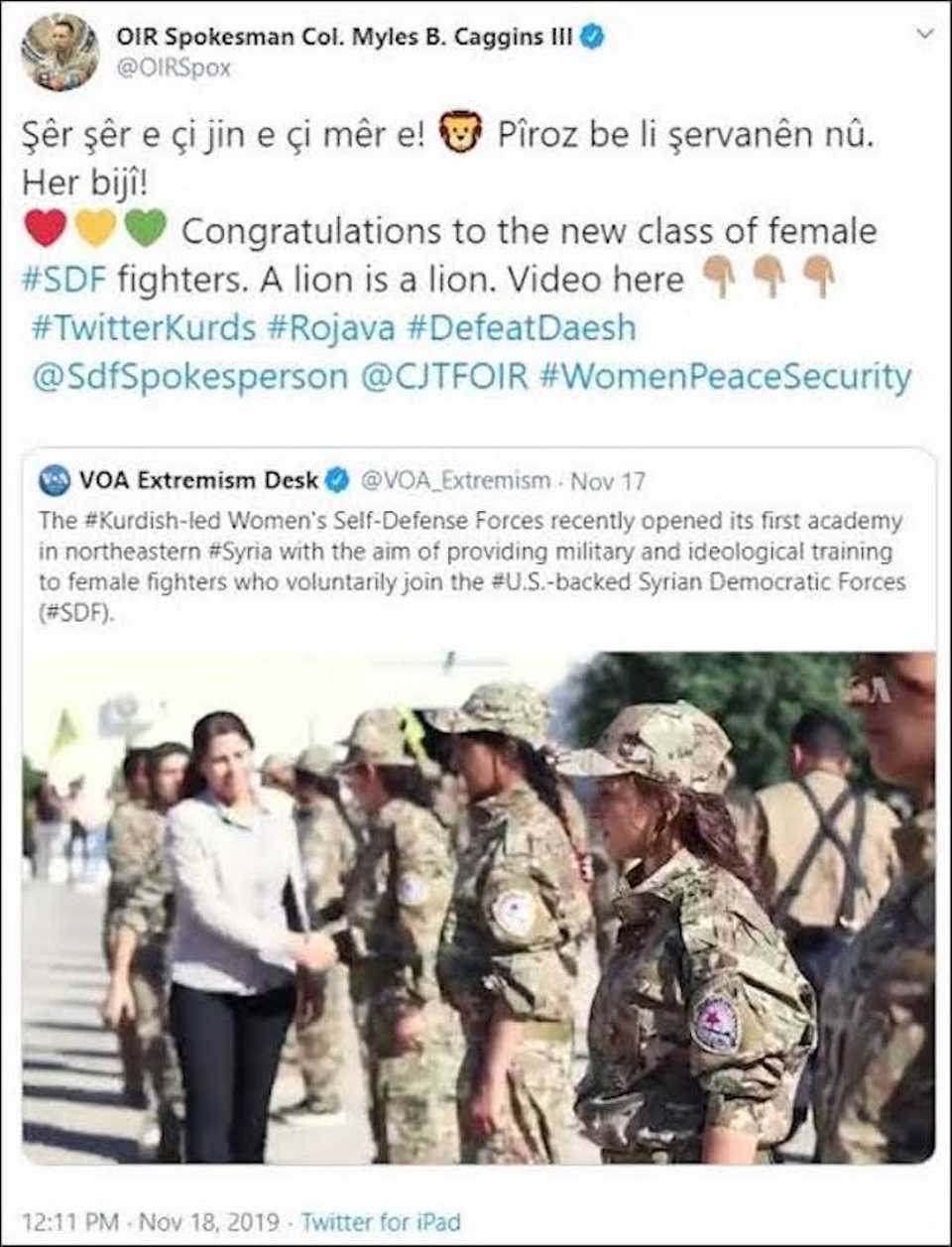
The official spokesman for the US-led anti-ISIS (Daesh) coalition, Colonel Myles Caggins, retweeted a video from Voice of America, along with a PKK slogan that promotes enmity against its NATO ally, Turkey.
The video is aimed against Turkey’s anti-terror Operation Peace Spring in which an all-female class of the so-called Syrian Democratic Forces (SDF) recruits are seen during the opening of an ‘academy’ in northeastern Syria.
Caggins later deleted the tweet that cheerleads the YPG, the PKK’s Syrian offshoot, a group designated as a terrorist organisation by Turkey, the US and the European Union.
The terrorists in the video repeatedly mention that they are fighting against Turkey and Turkish President Recep Tayyip Erdogan.

More than 40,000 men, women, and children have been killed during the PKK’s three-decade terror campaign against Turkey.
The US and the YPG have been collaborating in northern Syria since 2015, when Washington cobbled together the so-called SDF to fight the growing presence of Daesh in the region.
The US armed the YPG and stressed several times that the arming process was temporary and the supply of weapons and ammunition would be limited to what the YPG need to carry out specific operations against Daesh.
Caggins told Anadolu Agency that the coalition “supports the military training of SDF specifically for the mission to defeat ISIS [Daesh] remnants in eastern Syria”.
The video, on the other hand, isn’t focused on Daesh but it focuses on the Turkish state and its president Recep Tayyip Erdogan.
Turkey has been a member of the anti-Daesh coalition since the beginning and Turkey has eliminated over 4,000 members of Daesh while the YPG recently released 800 Daesh prisoners in Tal Abyad according to Turkey’s defence ministry.
In response to Anadolu Agency’s questions, Colonel Caggins tried to justify his statement by saying: “The Coalition does not endorse the personal opinions expressed by any individual trainees.”
The YPG is the backbone of the SDF, and US reliance on and support of the group has angered Ankara and strained the two countries’ relations.
In 2018, former commander of US Special Operations Command Raymond Thomas stated that the YPG terror group rebranded itself as the SDF to gain the legitimacy necessary for a seat at the Syrian negotiation table.
The coalition has repeatedly tried to portray the SDF as a multi-ethnic, non-sectarian organisation, but when asked why only YPJ (the all-female branch of the YPG) trainees are seen at the academy, Caggins said: “I refer you to the SDF for specific demographic information.”
Despite abundant evidence provided by the PKK’s numerous offshoots of their organic ties to the internationally-recognised terror group, US support for them in the region has not abated.
US President Donald Trump has repeatedly stated that Daesh is 100 percent defeated, but the US Department of Defense has already allocated $300 million to its future military projects in northern Syria for 2020.
The YPG and its offshoots have been documented several times carrying posters of jailed PKK leader Abdullah Ocalan at events they organise, chanting the same slogans as the PKK, such as “Long Live Leader Apo”, and openly admitting that their loyalty lies with Ocalan.
While holding a news conference in February in Ankara, US Senator Lindsey Graham admitted that there was evidence of a “strong link” between the YPG and the PKK.
He told reporters that there was sufficient evidence to prove that both organisations had links, adding that former US president Barack Obama “created a nightmare” for Turkey by arming elements of the YPG that are “clearly tied to the PKK”.
He referred to the YPG as the “political wing” of the PKK, by noting that he had been aware of the fact that the Obama administration’s Syria policy was wrong.
“I knew what arming the YPG/PYD meant for Turkey when I learned about it,” Graham said.
In the Syria section of the CIA’s ‘World Factbook’, it lists the Syria-based PYD as a PKK branch in a list of foreign-based terrorist groups. The YPG is the armed branch of the PYD.
“Kurdistan Workers’ Party (PKK): aim(s): advance Kurdish autonomy, political, and cultural rights in Syria, Turkey, Iraq, and Iran; area(s) of operation: operational in the north and east; majority of members inside Syria are Syrian Kurds, along with Kurds from Iran, Iraq, and Turkey (2018),” the section currently reads.
Although the page was later changed, the Syria section continues to list the PKK under “foreign-based terrorist groups”.










Discussion about this post